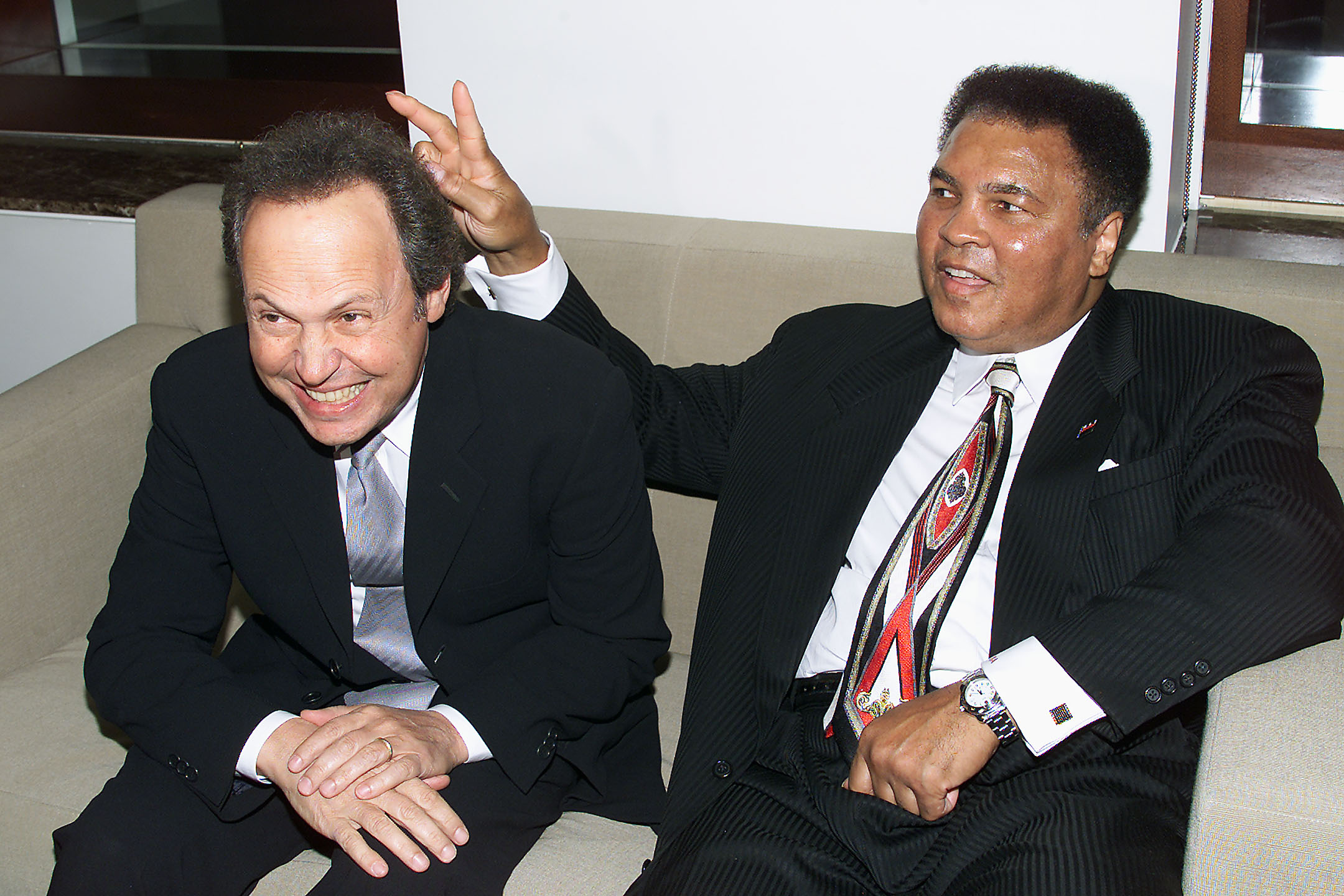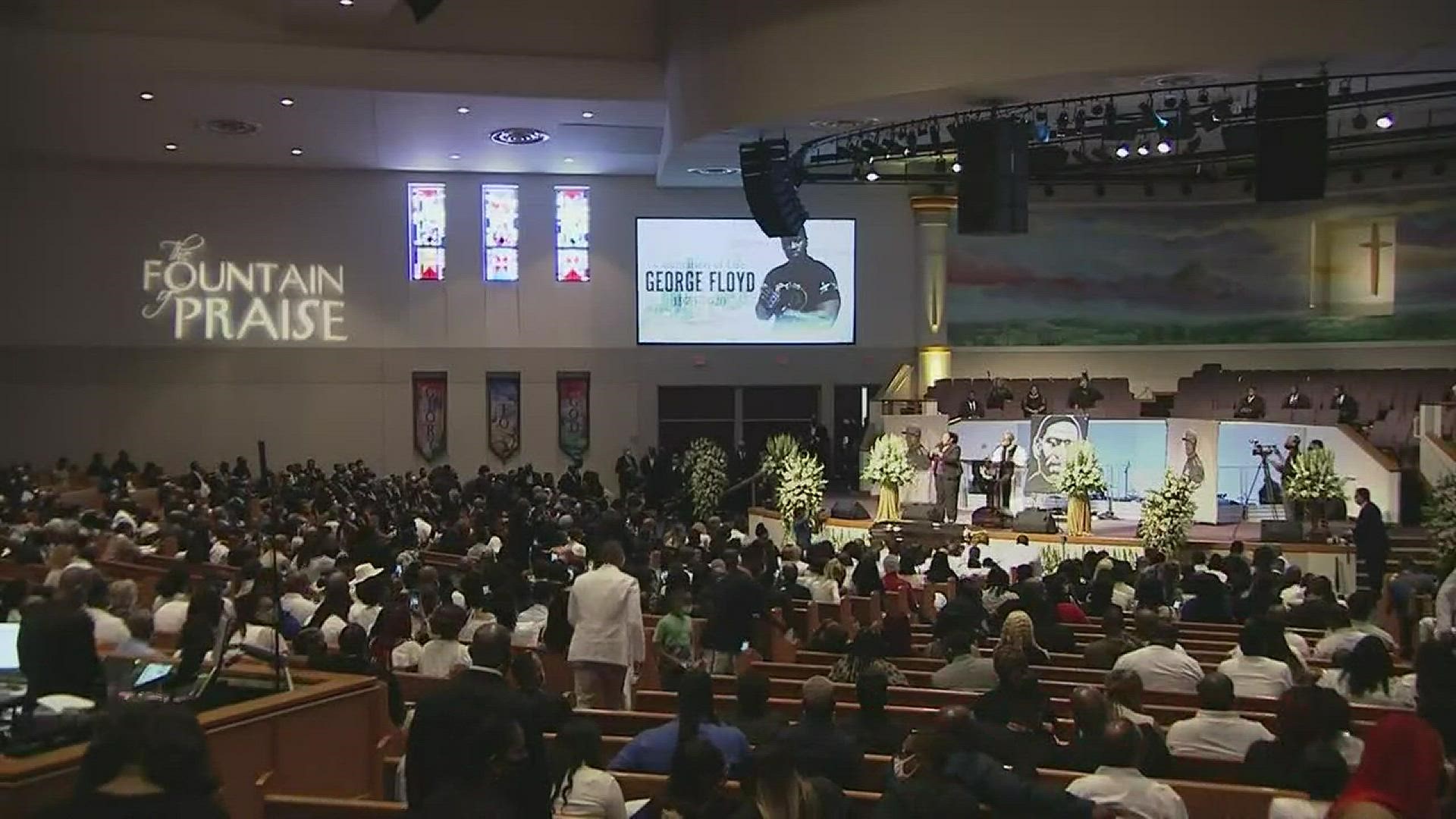![Muhammad Ali: The greatest legacy [video : 85374612]](http://videos.usatoday.net/Brightcove2/29906170001/2016/06/29906170001_4926692420001_4926557669001-vs.jpg?pubId=29906170001)
In 2010, actor and comedian Billy Crystal wrote an essay for USA TODAY Sports on what Muhammad Ali means to him.
Ali and I had been friends for years as we sat next to each other at the funeral for Howard Cosell. I had done my first television appearance back in 1974 on a special honoring Ali, where I imitated Ali and Cosell. He loved it and started calling me “little brother,” the nickname he still uses for me to this day.
It was a somber occasion, to be sure. Howard and Muhammad had done so much for each other over the years. Looking at the closed casket, he nudged me and whispered, “Do you think he’s wearing his hairpiece?”
I had to hold in my laugh, “I don’t think so,” I replied. Ali paused, “Then how will God recognize him?”
![Muhammad Ali-Angelo Dundee partnership helped create a boxing legend [oembed : 85400290] [oembed : 85400290] [oembed : 85400290] [oembed : 85400290] [oembed : 85400290] [oembed : 85400290]](/Portals/_default/Skins/PrestoLegacy/CommonCss/images/smartembed.png)
“Once he starts complaining, He’ll know,” I said. We both shared a muffled laugh. Then he looked at me and said, “He was a good man.”
He once asked if I’d like to run with him on a golf course. He loved to run there for privacy.
Sure, I said, but when he told me where we would run, I told him they didn’t allow Jews there and I couldn’t go. He got angry. “They don’t allow Jews? I’m a Muslim and they allow me! I will never run there again, little brother, I promise you.” And he didn’t. That was the Ali I will never forget.
![Muhammad Ali: 'Greatest of All Time' [videoplaylist : 85357856]](http://videos.usatoday.net/Brightcove2/29906170001/2016/06/29906170001_4927348207001_video-still-for-video-4927298218001.jpg?pubId=29906170001)
I was honored by the Hebrew University in Jerusalem with its highest honor, the Scopus Award. The dinner was in Los Angeles, and Muhammad was the dinner chairman. Not only did he lend his time to it, but he also came and sat with my family at our table, and kept calling my mother “Mama.” She told him how important he was to her.
During Vietnam, my older brother, a schoolteacher, was about to be drafted. My father had died recently and now Joel, Mom’s sole support, was about to be taken from us. With Bobby Kennedy gone, and Martin Luther King gone, Ali took his stand and refused induction. He became a great force against the war. Some hated him for it; others like me loved him for it. The government stripped him of his rights. He faced prison. He was the fighter who wouldn’t fight. My mom was inspired by him.
She gave a speech to the draft board, and told them they couldn’t have her son. She won, the way he would eventually win. So, that night at this dinner, she thanked him. They hugged, and Ali said he was glad she got her boy back.
![2016-06-03-crystal-ali [image : 85373540]](http://www.gannett-cdn.com/-mm-/405216ef9c58a4472566df65f800e0f2782db05d/c=238-0-1923-1440/local/-/media/2016/06/03/USATODAY/USATODAY/636005807909360157-SW11-V2ALIcrystal-23.jpg)
Mom got it right. He was the voice we needed to hear. He put his life on the line. Would any other athlete do that today?
Two years ago, I was on tour in Phoenix with my one-man show 700 Sundays. I got a call from Ali’s camp that he was 65 that day, and he wanted us to come over for breakfast and could he see the show that night. We spent the morning together. “Little brother, you looking good. Not as pretty as me, but good,” he joked.
That night, he came to the show, but we didn’t let him sit in the audience because with all his majesty, he can be a distraction. We got him a big easy chair and put it in the wings out of sight of the audience.
My mind raced through our now-30-year relationship. How strange it is that we were at this point now: Ali no longer the brash-talking, wide-eyed genius of the ring, but now a quiet Buddha in some ways more eloquent in his silence. I finished the first act, and before we went to intermission, I surprised the audience and brought him out to a three-minute standing ovation.
After introducing him as the “greatest senior citizen of all time,” he blew kisses to the crowd as we sang Happy Birthday, made a few jabs at me and looked like he loved the attention. Afterward, we shuffled to the wings where he was helped into a golf cart that would take him to his car. Would I come over tomorrow, he asked in a whisper. “Yeah, if you wanna run a golf course or something.” He perked up, “We can, little brother. There’s a lot of Jews here.”
I watched him go as his wife, Lonnie, held his hand and best friend Howard Bingham guided him. I felt a tear welling up, but he wouldn’t want me to be sad, because he isn’t. He believes this is what was chosen for him: to be the great ambassador for peace and understanding.
Our teacher, our healer. He was the fighter who wouldn’t fight. He is a good man.
PHOTOS: Muhammad Ali
![Muhammad Ali through the years [gallery : 1767727]](http://www.gannett-cdn.com/media/USATODAY/USATODAY/2012/12/13/xxx-ap6505250172-front_thumb.jpg)


